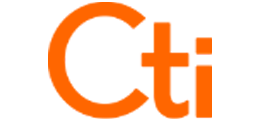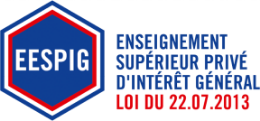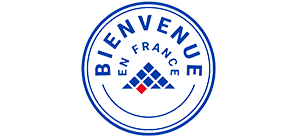Automotive Engineer
Environment, security, comfort, reliability and energy optimisation – these are the main areas being researched by manufacturers in the automobile sector for designing the new vehicles of the future.
Equipment suppliers and large manufacturers need engineers for producing new products, new technologies and new manufacturing processes, and also for performing tests, organising production and researching the market.
Specialised training and privileged contact with companies
ESTACA’s “Automobile” specialisation provides preparation for all of these jobs. Specialised training and privileged contact with companies more than 400 hours of training provided by engineers from Renault, PSA, Valéo, Bosch, Faurecia, etc.
At least 4 implementation projects for developing work in project mode, as part of a team and promoting the spirit of innovation. Some examples :
- preliminary project on the architecture of future vehicles
- design of a braking system for a given vehicle;
- development of a low-consumption engine to meet the requirements of the Shell eco-marathon.
12 months of mandatory work-experience courses, for example:
- Discovering the company course in the 1st year at the Motor Museum: renovating old engines.
- Engineer’s work-experience course in the 4th year at PSA-Peugeot Citroën: research for acoustic insulation of automobile passenger spaces
- End of studies work-experience course” in 5th year – optimisation of stress lanes for an automobile structure for weight improvement in ISO performance for crash tests at PSA Peugeot Citroën an “automobile dynamics” laboratory in support of lessons.
Main partners
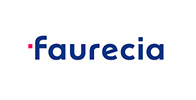
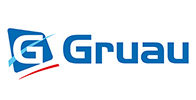
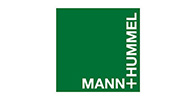




Associations for Expressing your Interests
The PV3e and its propulsion : 2,701km with 1 litre of petrol! An association that designs and builds energy-efficient vehicles for taking part in Shell marathons where the aim is to travel a maximum distance with 1 litre of petrol.
Let’s invent the transport of tomorrow : This association designs innovative vehicles and creates prototypes.
A racing team for automobile sports enthusiasts : Jema by ESTACA lets students take part in the life of an automobile racing team.
RACE restores old vehicles and organises the “Grandes Ecoles” rally.
Enthusiasm for 4L : Estacatrelle bring together 4L enthusiasts for rallies.
Those who enjoy go-kart racing are grouped within EMOS.
The main employers of ESTACA engineers in the automobile sector PSA, Renault, Bosch, Valeo, Faurecia, Delphi
- Sciences
- Human sciences and Engineering culture
- Transport Engineering
- Vocational Internship I (4 weeks)
- Sciences
- Human sciences and Engineering culture
- Transport Engineering
- Vocational Internship II (4 weeks)
- Sciences
- Human sciences and Engineering culture
- Transport Engineering
- Sciences
- Human sciences and Engineering culture
- Transport Engineering
- Trainee engineer Internship (4 month)
- Transport Engineering
- Engineer Internship (6 month)
Automotive Syllabus - 1st Year
- Scientific Training
- Training in the Human Sciences
- Initiation Guided Transport, Initiation Automobile, Initiation Aeronautics and Space
Vocational Internship I (4 weeks).
• Logic
• Calculus in R and C
• Plane and spatial geometry
• Functions with one variable
• Sequences
• Polynomials
• Linear algebra
• Differential equations and systems
• Frames of reference
• Coordinate systems
• Trajectories and equations of movement
• Particle mechanics
• Link mapping and analysis
• Technologies and operation of actuators
• CAO (SOLIDWORKS)
• Systems of units and uniformity of equations
• Order of magnitude and error calculations
• Introduction to organic chemistry
• Reaction mechanisms (electronic, energy and kinetic aspects), Alkanes, alkenes, alkynes and hydrocarbons)
Automotive Syllabus - 2nd Year
- Scientific Training
- Training in the Human Sciences
- Automobile
Vocational Internship II (4 weeks).
• Functions with several variables
• Vectoral analysis
• Power series and Fourier series
• Laplace transform and Fourier transform
• Conics
• Real-valued random variables
• Discrete and continuous usual laws
• Central limit theorem and approximations
• Introduction to object oriented programming
• Project in C++ language
• Advanced Excel
• Traction / compression / torsion / bending
• Strain and stress
• Mechanical behaviour
• Beam analysis and dimensioning
• Physical and mechanical properties
• Different types of materials
• Crystallography
• Study of combustion characteristics
• Free enthalpy
• Redox
• Single, alkali and hydrogen fuel cells
• MSystems modeling (equations and transfer functions)
• Elementary command loop
• Systems frequency studies
• Matlab application
• Periodic signals
• Functional approach (amplifiers and filters)
• Frequency responses
• Functional aspects of converters
• Inverters, converters and continuous current machines
• Propagation and superposition phenomena
• Maxwell equations
• Applications to acoustic waves and electromagnetic waves in a vacuum
Automotive Syllabus - 3rd Year
- Scientific Training
- Engineering Culture
- Automobile
• Isostatism of a mechanism, analysis, determination and functional incidences
• Theory of contact between solids
• Dimensioning of guidance, assembly and power transmissions
• Introduction to fatigue
• Introduction to various modes of heat transfer
• Conduction (heat equation, stationary and variable regimes)
• Convection
• Radiation
• Analysis of periodic signals
• Signal energy and power
• Analogue digital conversion
• Introduction to digital fi ltering
• Fluid dynamics
• Dimensional analysis and similarity
• Boundary layer (laminar and turbulent)
• Power electronics
• Electromechanical conversion (energy effi ciency)
• Structure and principle of electric machines (synchronous and asynchronous)
• Application to electrical motors and converters
• Logic functions
• Combinatory and sequential circuits
• Introduction to information transmission
• Linear systems
• Interpolation, approximation and integration
• Ordinary differential equations (explicit and implicit methods)
• Partial differential equations (finite differences)
• Model complexity analysis
• Parameter analysis and dimensioning
• Programming, validation and optimization
• Presentation of UML
• UML static and dynamic diagrams
• Development of an application
• Group dynamics
• Formalization of the professional project
• Introduction to project management
• Functional and technical needs analysis (specs)
• Operation condition
• Application to product-process design
• Application to an innovative project
• Review of energy resources in the world and in France
• Macro- and micro-economic analysis of the dependency on raw materials
• Application to the transport of tomorrow
• Longitudinal dynamics
• Total energy management
• Combustion engines
• Communication network architecture
• Calculator electronics and on-board software
• Driving aid functions
Automotive Syllabus - 4th Year
- Scientifics training
- Engineering Culture
- Automobile
Trainee engineer Internship (4 month).
• Variational formulation and meshing
• Structure discretization
• The various families of finite elements in structure calculation
• Calculation of elementary matrices, assembly and calculation of the solution to a static problem
• General hypotheses of continuum mechanics
• Theory of elasticity, viscoelasticity and thermoelasticity
• Introduction to damage, rupture and fatigue
• Elastic problem solving methods
• Introduction to dynamic and acoustic phenomena
• Theoretical and experimental modal analysis
• Linear acoustics, acoustic modes and acoustic impedance
• Mass and energy balances in open systems
• Conversion of thermochemical energy into heat energy
• Conversion of thermochemical energy into mechanical – electrical energy
• Architecture design of hydraulic systems
• Modelling of head loss
• Power dimensioning
• Introduction to networks and components
• Coupling of mechanical, electrical, thermal and hydraulic models
• Multi-physical modeling tools
• Basic concepts of software architectures
• Task scheduling
• Synchronization and inter-task communication
• Control of discrete-time systems
• Introduction to sequential systems
• Real-time prototyping
• Inverse model
• Modelling control of asynchronous and synchronous machines
• Introduction to quality
• Process model and control graph
• Certification and customer relations
• Statistical inference (sampling and estimation)
• Statistical process control
• Experimentation
• Introduction to industrial company organization and environment
• Production planning (flows, stock management, needs calculation)
• Introduction to lean management
• Social behaviour in the company
• Managing international projects
• Structuring a project into tasks and phases
• Business plan
• Formalization of the professional project
• The network
• Automobile safety (technology, passive safety device simulation and design)
• road holding (axles, suspension)
• Braking systems
• Engineering in motor sports
• Technologies of automobile engines
• Motor sport engines
• New engines
• Transmission and gearbox technologies
• Engine control (petrol & diesel)
• Powertrain services (performances, emissions, consumption and acoustics)
• On-board and wireless networks
• Mecatronic systems integration
• Driving aid functions
• Product design, industrialization, safety and marketing
• Customer knowledge
• Logistics
• Sustainable mobility
• Business model
Automotive Syllabus - 5th Year
- Specialisation – Automobile
Engineer Internship (6 month).
• Automobile and environmental impact
• 0D/1D modeling of energy systems
• 3D simulations of fl ows applied to engine design
• Metrology in the engine environment
• Combustion engines (CO2 emissions, pollution control, etc.)
• Hybrid and electric vehicles (architecture, impacts)
• Hydrogen fuel cells
• Highspeed dynamics (high deformations)
• Study of non linearities (materials, contact, instabilities)
• Modelling of thin components
• Optimisation of structures
• Materials, products, process: high-performance steels, aluminium, composites
• Multi-material assembly
• Additional science (acoustics, vibration, elasto-acoustic coupling)
• Standards, noise sources, filtering elements
• Perceived quality
• Reduction and improvement of the sound and vibration environment
• Ergonomics
• Economic, environmental and regulatory context
• Eco behaviour / Eco materials / Eco-design / Eco destruction
• On-board IT and networks: Calculator electronics and industrial IT, real-time LINUX
• Communication buses (CAN / LIN / FlexRay)
• Mecatronic systems: Multi-physical modeling
• Sensors / Actuators
• Model engineering: Design of critical systems, 2662 standards, Autosar standard, Model-base code generation
• Test and validation of on-board systems




